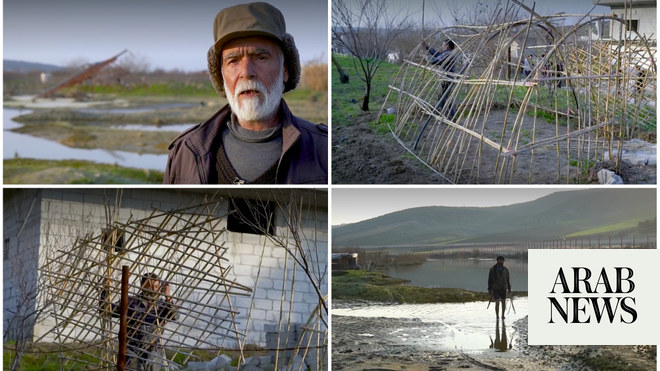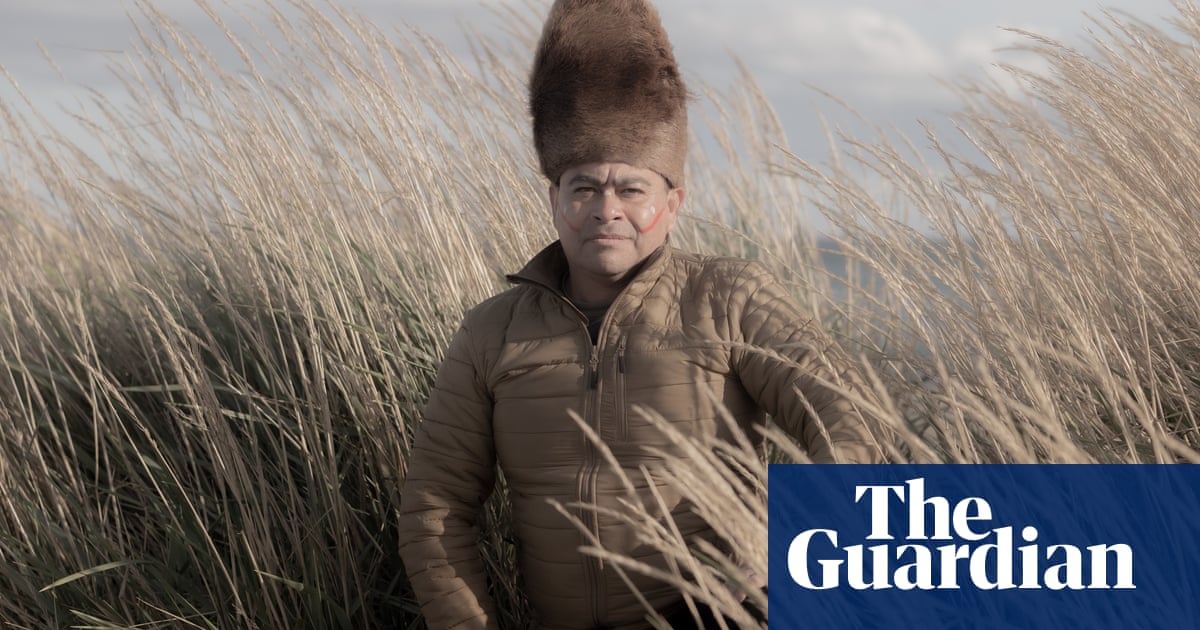
In the impoverished village of Al-Alani, many residents cannot afford a 200 lira ($5) cloth tent to replace their collapsed homes
IDLIB: In countryside west of Idlib in northwest Syria, farmers are bearing the brunt of the Turkiye-Syria earthquake’s aftershocks on their farmland and lifeline.
In the impoverished village of Al-Alani, many residents cannot afford a 200 lira ($5) cloth tent to replace their collapsed homes. In the absence of quake relief, they are sourcing local materials such as canes to provide temporary shelter.
Mohammad Ali Mandi, from Al-Alani village, told Arab News that the privilege of buying a house straight away is not an option for his neighbors.
In order to replace their homes, Mandi predicts that some residents may need two to five years, and others, including him, even longer.
“I don’t have money to pay the construction worker 75 liras. With that money I have to feed my kids. I can’t even buy a tent,” he said.
“I will make a tent out of nylon instead of cloth and I will sleep in it with my family, my wife, my kids, my daughter in-law and my son. There are fifteen of us. Around three or four families live in this tent,” he added.
Adnan Abdel Karim Bakro, a farmer from the village, is another resident who has constructed a makeshift tent.
Bakro’s home has not fully collapsed — the roof still stands — but deep cracks in the walls allow light to enter from the outside.
The shock and fear brought about by the quake have made even partially damaged homes uninhabitable.
The only time Bakro enters his home is to use water to make ablution for his daily prayers.
He said: “I am forced to do the wudu (ablution), so I do it like a thief who breaks into someone else’s house and leaves in a hurry. I don’t feel safe anymore.”
The quake has displaced the residents of Al-Alani and exacerbated the setbacks farmers were already facing due to last year’s cold season.
“We lost all the crops last year, and no one benefited from the land. We couldn’t even make up for the irrigation costs,” Bakro told Arab News.
“God blessed some landowners with some profits, but the majority couldn’t benefit from the season.”
Agriculture is a lifeline for Al-Alani farmers like Bakro. He began working in the industry after inheriting a two-dunum-wide area land from his father. He had plans to leave the land for his eight children to make a living, but the quake ruined his vision for the inheritance.
Bakro told Arab News that the quake’s aftershocks destroyed one, two and three-meter-wide farmland in his village, and that some residents have lost between four and five-meter-wide lands.
“We remained alive, but we lost the land,” he added.












